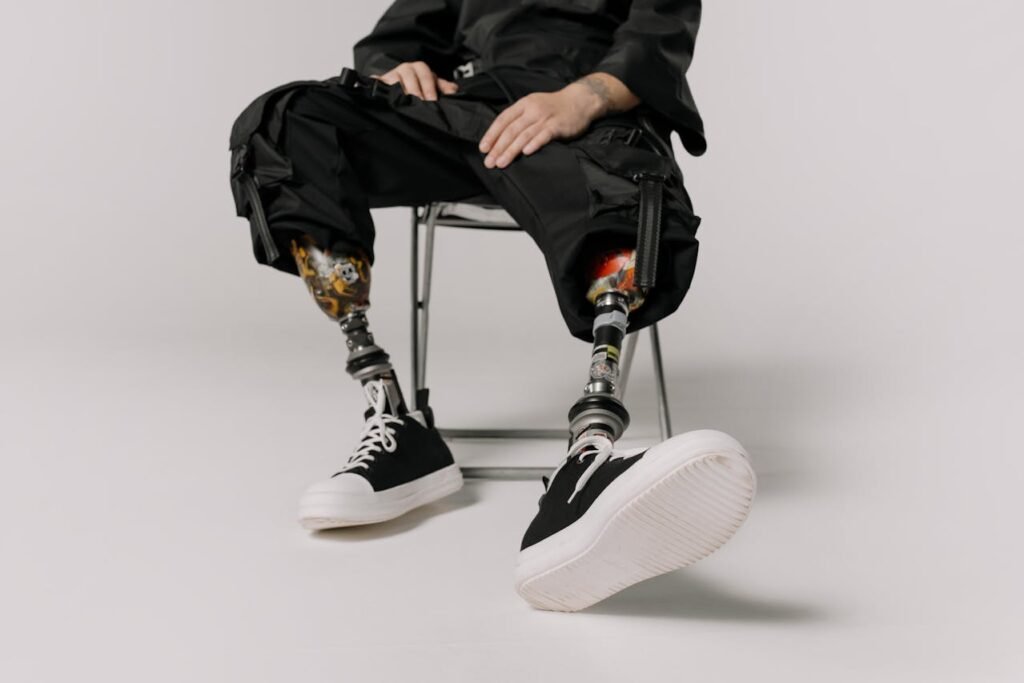Prosthetics have always been about more than mobility; they represent a pathway to reclaiming independence and living life to the fullest. As the field evolves, innovation continues to push the boundaries of what prosthetic limbs can achieve. Among the most transformative advancements is the advent of modular prosthetics, which are revolutionizing the way users experience customization and adaptability.
Modular prosthetics are designed with interchangeable components that allow users to tailor their devices to specific needs, activities, or preferences. This approach not only enhances functionality but also provides a level of personalization that was once unimaginable. In this article, we’ll explore why modular prosthetics are redefining the landscape of assistive technology, how they work, and why they are becoming the gold standard for customization in the prosthetics industry.
Understanding Modular Prosthetics
Modular prosthetics operate on a simple yet powerful concept: flexibility. Unlike traditional prosthetics, which are often fixed in design, modular devices consist of interchangeable parts that can be swapped, adjusted, or upgraded as needed. These components may include sockets, connectors, joints, and terminal devices such as feet or hands.
The Core Components of Modular Prosthetics
At the heart of modular prosthetics are their easily replaceable components. Each piece is designed to integrate seamlessly with the others, ensuring both structural integrity and ease of use. Common modular components include:
- Sockets: Custom-fitted to the user’s residual limb for optimal comfort and stability.
- Pylons or Connectors: Provide support and connect different parts of the prosthetic.
- Joints: Mimic natural motion, such as bending at the knee or flexing at the elbow.
- Terminal Devices: The functional end of the prosthetic, such as a hand, hook, or foot.
For manufacturers, the challenge lies in designing components that are not only durable and functional but also compatible with a wide range of activities and user needs. Investing in advanced materials and precision engineering ensures these components deliver consistent performance over time.
Elevating Functionality Through Interchangeability
Interchangeability is the foundation of modular prosthetics, enabling users to adapt their devices to a variety of contexts. Whether transitioning from a formal work environment to an athletic setting or adjusting for seasonal weather changes, modular systems provide a seamless experience.
For example, a user might switch to a more rugged foot attachment for hiking and return to a lightweight, everyday foot for indoor use.
For businesses, understanding the real-world scenarios users face is key to designing modular components that address those challenges effectively. Conducting user research or collaborating with prosthetists to gather insights into daily pain points can guide the creation of versatile, practical solutions.
Highlighting the adaptability of modular systems in marketing efforts helps communicate their value to potential users who may not be familiar with the concept.
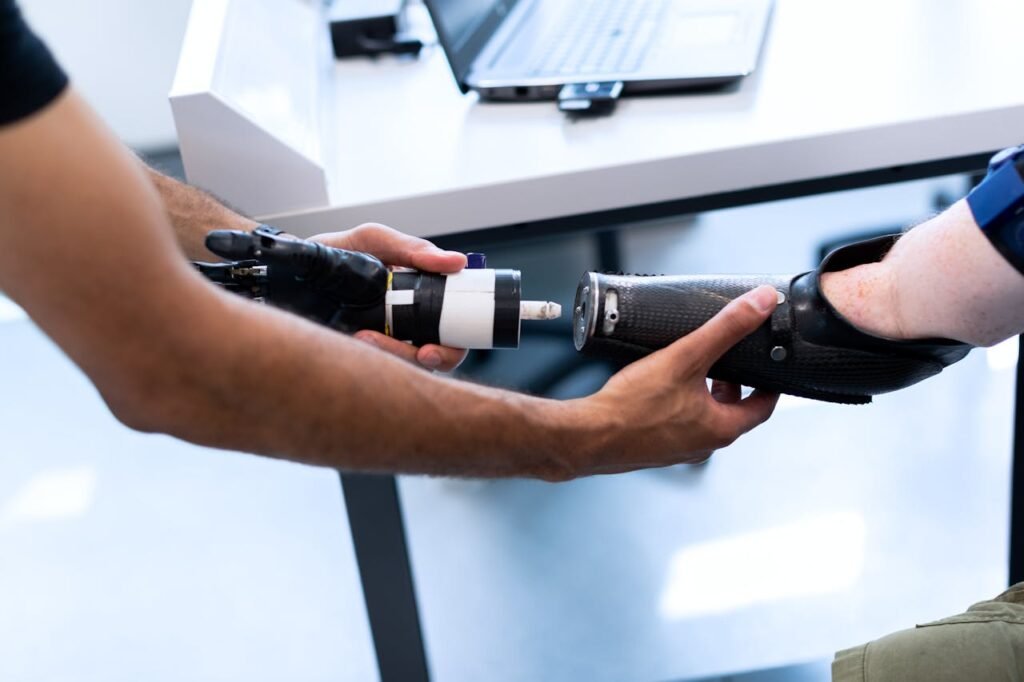
Bridging Customization and Standardization
One of the strategic advantages of modular prosthetics is their ability to balance customization with standardization. While every user’s needs are unique, modular systems leverage standardized connection points to ensure compatibility across a wide range of components.
This approach simplifies manufacturing, reduces costs, and ensures that users can access a variety of compatible parts regardless of the brand or model.
For businesses, adopting universal standards or open-source designs for modular prosthetics can enhance market reach and user accessibility. By promoting compatibility with third-party components, companies position themselves as user-focused innovators rather than proprietary gatekeepers.
Educating users and healthcare professionals about the benefits of standardized modular systems fosters trust and confidence in the brand.
Creating a User-Centric Experience
Modular prosthetics shift the focus from one-size-fits-all solutions to highly individualized experiences. This user-centric approach recognizes that every individual’s needs, preferences, and goals evolve over time.
By providing the tools for customization, modular systems empower users to take an active role in managing their prosthetics, fostering a sense of ownership and independence.
For businesses, enabling this level of personalization requires clear communication and support. Providing comprehensive guides, online tools, or virtual consultations can help users navigate the customization process with ease.
Offering trial programs or exchange policies for modular components further enhances the user experience, ensuring that every individual finds the combination that works best for them.
Driving Sustainability and Cost Efficiency
Another often-overlooked advantage of modular prosthetics is their contribution to sustainability. Because users can replace or upgrade individual components rather than purchasing entirely new devices, modular systems reduce waste and extend the lifespan of prosthetics.
This approach aligns with the growing consumer demand for eco-friendly solutions while also offering significant cost savings over time.
For businesses, emphasizing the sustainability of modular designs is both a strategic and ethical decision. Marketing modular prosthetics as long-term investments that support both users’ finances and environmental goals creates a compelling value proposition.
Additionally, exploring options such as recyclable components or buy-back programs can reinforce a brand’s commitment to responsible innovation.
The Benefits of Modularity
The modular approach to prosthetic design offers numerous advantages, both for users and the businesses that create these devices. By addressing a broad spectrum of needs and preferences, modular prosthetics provide unmatched value and versatility.
Personalization at Its Best
One of the standout features of modular prosthetics is the ability to personalize every aspect of the device. Users can choose components that align with their lifestyle, whether that means prioritizing aesthetics, functionality, or a combination of both.
This personalization fosters a deeper connection between the user and their prosthetic, transforming it from a tool into an extension of their identity.
For businesses, offering a range of modular options allows you to cater to a diverse user base. Highlighting the ways in which users can customize their prosthetics—such as selecting finishes, colors, or advanced features—enhances the appeal of your products and positions your brand as a leader in innovation.
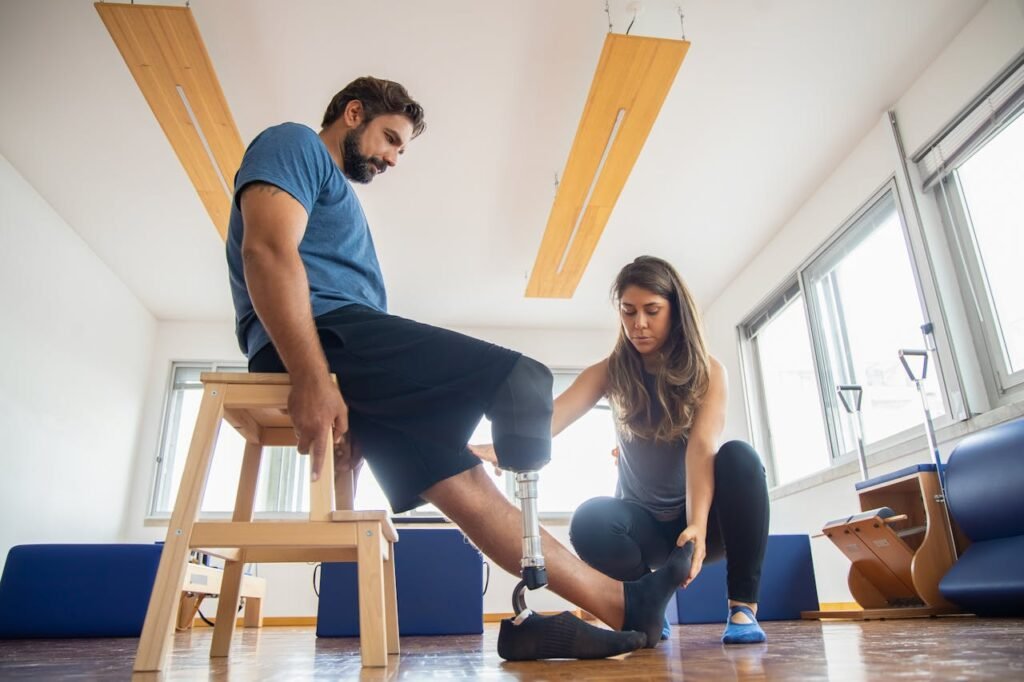
Cost-Effectiveness and Longevity
Traditional prosthetics often require complete replacement when a user’s needs or preferences change. Modular prosthetics, however, allow for incremental upgrades or replacements, reducing overall costs while extending the device’s lifespan.
For instance, if a user’s residual limb changes shape over time, they can simply replace the socket rather than the entire prosthetic. Similarly, upgrading to a more advanced terminal device doesn’t necessitate a complete overhaul of the system.
For businesses, promoting this cost-effective approach appeals to budget-conscious users and their families. Offering flexible payment plans or upgrade options further reinforces the value of modular designs.
Enhancing Adaptability with Modular Prosthetics
One of the most remarkable aspects of modular prosthetics is their adaptability. These devices can be tailored to meet the demands of various environments, activities, and stages of life, making them invaluable for users with dynamic lifestyles.
Seamless Transition Between Activities
For individuals who participate in diverse activities, modular prosthetics provide the ability to switch between components designed for specific functions. For example, a user might attach a high-performance running blade for athletic pursuits and then switch to a foot optimized for casual walking or office use.
This adaptability eliminates the need for multiple prosthetics, offering convenience and efficiency. Users no longer need to compromise on performance in any area of their lives, whether they’re hiking, swimming, or attending a formal event.
For businesses, showcasing the versatility of modular designs through real-life examples or demonstrations can resonate strongly with active users. Emphasizing the ease with which components can be swapped or adjusted highlights the practicality of these devices.
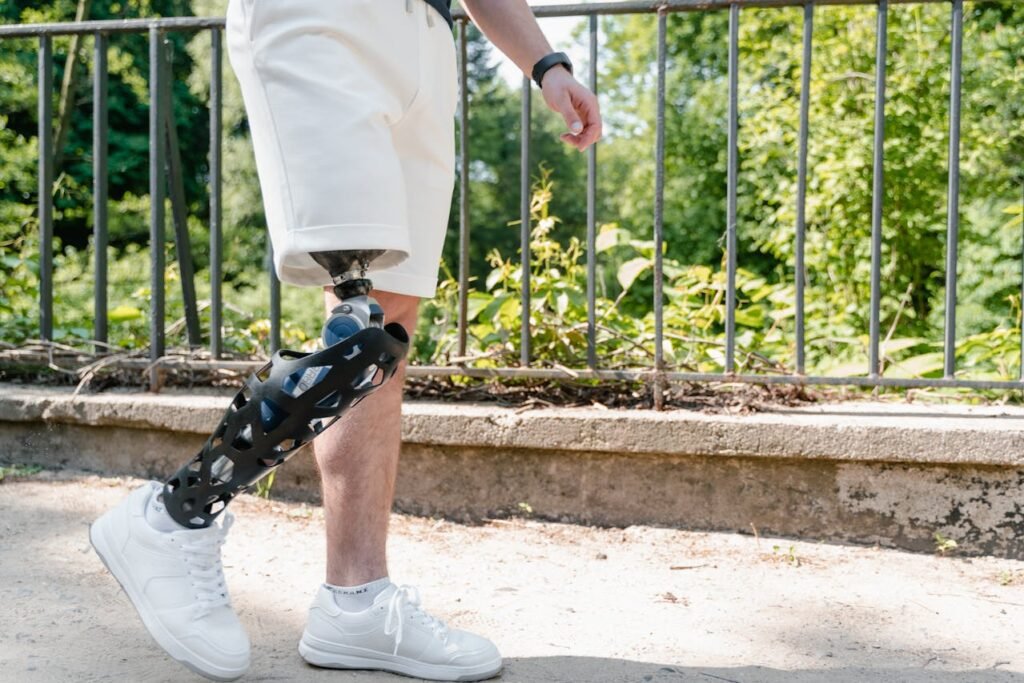
Supporting Growth and Change
For children or adolescents who rely on prosthetics, modular designs are especially beneficial. As young users grow, their prosthetic needs change significantly. Modular systems allow for incremental adjustments and replacements, accommodating growth without requiring entirely new devices.
Similarly, adults may experience changes in their residual limb due to weight fluctuations, muscle development, or other factors. Modular prosthetics adapt to these changes, ensuring ongoing comfort and functionality.
For businesses, promoting modular prosthetics as a scalable solution for growing children or evolving needs positions your brand as a forward-thinking partner in the user’s journey. Offering trade-in programs for older components or discounts on upgrades further strengthens this relationship.
Innovations Driving Modular Prosthetic Technology
The rise of modular prosthetics has been fueled by significant advancements in technology, materials, and design. These innovations are not only enhancing the performance of these devices but also expanding the possibilities for customization and user satisfaction.
Advanced Materials for Lightweight Durability
The materials used in modular prosthetics must strike a delicate balance between durability and weight. Advanced composites, such as carbon fiber and titanium alloys, have become staples in modular designs due to their strength-to-weight ratio. These materials enable users to move freely and comfortably while ensuring the prosthetic withstands rigorous use.
For businesses, investing in research to identify and incorporate cutting-edge materials can enhance the appeal of your modular products. Educating users about the benefits of these materials, such as reduced fatigue or increased resilience, adds another layer of value to your offerings.
Smart Prosthetic Components
The integration of smart technology into modular prosthetics is transforming the way users interact with their devices. Components equipped with sensors and artificial intelligence can adapt in real-time to changes in movement, terrain, or user input.
For example, a smart knee joint might adjust its resistance automatically based on walking speed, or a myoelectric hand could recognize and execute specific grip patterns with minimal effort. These advancements not only improve functionality but also provide users with a more intuitive and natural experience.
For businesses, incorporating smart features into modular designs demonstrates a commitment to innovation and user-centric solutions. Offering tutorials or hands-on training for these features ensures users can maximize the benefits of their smart prosthetics.
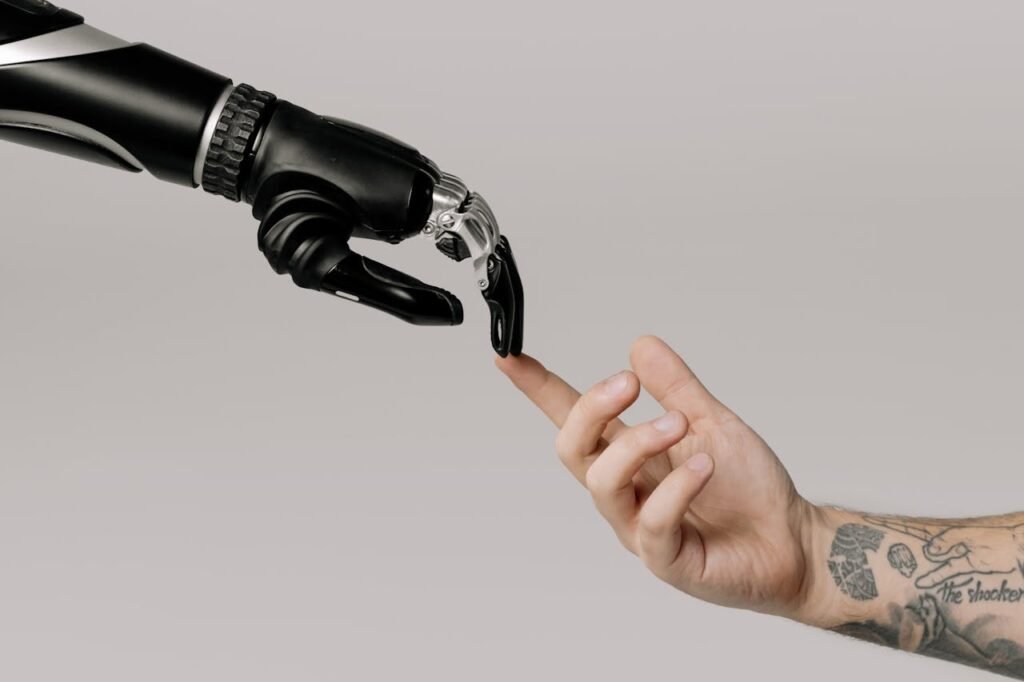
3D Printing for Customization
3D printing is revolutionizing the production of modular prosthetics, enabling the creation of highly personalized components at a lower cost. This technology allows manufacturers to produce sockets, connectors, or even entire prosthetics that are tailored to the user’s unique anatomy and preferences.
For businesses, leveraging 3D printing not only improves efficiency but also allows for greater experimentation with design and aesthetics. Highlighting the role of 3D printing in creating bespoke solutions can differentiate your brand in a competitive market.
The Psychological and Emotional Benefits of Modular Prosthetics
Beyond their physical functionality, modular prosthetics offer profound psychological and emotional advantages. These devices provide users with a sense of control, individuality, and empowerment, transforming how they perceive themselves and interact with the world.
Empowering Personal Expression
Modular prosthetics allow users to personalize their devices in ways that reflect their unique personality and style. From custom finishes and colors to artistic designs or themed components, these prosthetics become an extension of the user’s identity rather than just a tool.
For example, a user might choose vibrant colors or patterns for a special occasion or opt for a minimalist aesthetic for professional settings. This flexibility in appearance helps users feel confident and comfortable in various social and personal environments.
For businesses, offering customization options tailored to individual preferences can enhance user satisfaction and loyalty. Displaying examples of creative, personalized prosthetics in your marketing materials inspires potential users and showcases the versatility of your products.
Building Confidence Through Adaptability
The ability to switch components based on activity or environment fosters a sense of independence and control. Users can approach new challenges—whether it’s trying a new sport or adapting to a work environment—knowing that their prosthetic can meet their needs.
This adaptability reduces anxiety about limitations, allowing users to focus on their abilities rather than their constraints. For businesses, emphasizing the empowerment that comes with modular designs creates an emotional connection with potential customers. Testimonials or success stories from users who have overcome challenges thanks to modular prosthetics reinforce this message.
Challenges and Considerations in Modular Prosthetics
While modular prosthetics offer numerous benefits, they also come with unique challenges that businesses must address to ensure a seamless user experience. Understanding these considerations allows manufacturers to refine their designs and provide better support for their customers.
Compatibility Across Components
One of the primary challenges in modular prosthetics is ensuring compatibility between components. As users switch parts or upgrade to new technologies, mismatched interfaces or connection points can lead to frustration or reduced functionality.
For businesses, adopting universal standards for connectors and interfaces can simplify the user experience and build trust. Clearly communicating compatibility information and providing guidance during the selection process ensures that users can make informed choices.

Balancing Complexity and Usability
The flexibility of modular prosthetics can sometimes be overwhelming for users, especially those new to prosthetic technology. Managing multiple components, understanding their functions, and performing adjustments can feel complex without proper support.
To address this, businesses should prioritize intuitive designs and user-friendly interfaces. Offering comprehensive training, both during and after the fitting process, ensures users feel confident in operating their modular prosthetic. Digital resources, such as video tutorials or interactive apps, further enhance accessibility and understanding.
Cost and Accessibility
While modular prosthetics offer long-term cost savings, the initial investment can be significant. For users in low-resource settings or without comprehensive insurance coverage, this cost can be a barrier to access.
For businesses, exploring cost-reduction strategies such as 3D printing, mass customization, or partnerships with non-profit organizations can expand accessibility. Offering financing options or payment plans further demonstrates a commitment to making modular prosthetics available to a broader audience.
The Future of Modular Prosthetics
Modular prosthetics are at the forefront of innovation in assistive technology, and their potential is only beginning to be realized. As research and development continue, these devices are expected to become even more sophisticated, versatile, and user-centric.
Bio-Integrated Components
Future modular prosthetics may incorporate bio-integrated technologies that connect directly to the user’s nervous system. These advancements would allow for more intuitive control, enabling users to move their prosthetic limb as naturally as they would their biological limb.
For businesses, investing in bio-integration research and collaborating with academic institutions can position your brand as a leader in cutting-edge prosthetic technology. Sharing insights about ongoing developments builds anticipation and excitement among potential customers.
Sustainable and Eco-Friendly Designs
Sustainability is becoming a priority in prosthetic manufacturing, and modular designs align naturally with this goal. By creating components that are recyclable, reusable, or made from sustainable materials, businesses can reduce waste and environmental impact.
For businesses, emphasizing eco-friendly practices in modular prosthetics not only appeals to environmentally conscious users but also enhances your brand’s reputation as a socially responsible innovator.
Expanding the Role of Smart Technology
Smart technology is poised to play a central role in the evolution of modular prosthetics. With advancements in sensors, artificial intelligence (AI), and connectivity, future prosthetic components will not only adapt to a user’s physical needs but also learn from their behaviors.
For instance, an AI-enabled modular knee joint might analyze gait patterns over time to improve stability and efficiency automatically.
Businesses can capitalize on this trend by investing in R&D to integrate smart technology into their modular designs. Collaborations with tech companies or research institutions can accelerate innovation and provide access to cutting-edge developments.
Offering training and support for users to understand and maximize these features ensures that your products remain practical and accessible, even as they become more advanced.
Customization Through Biometric Integration
As biometric technologies advance, modular prosthetics will likely incorporate more precise ways to interface with the user’s body. Innovations such as neural interfaces or muscle signal mapping will enable modular components to function as natural extensions of the body.
These developments will enhance user control and reduce the learning curve for operating complex prosthetics.
Businesses that explore biometric integration early will have the advantage of aligning their products with the future demands of the market. Partnering with healthcare providers or neurology specialists can provide valuable insights for designing components that offer seamless and intuitive control.
Emphasizing these features as part of your brand identity communicates a forward-thinking, user-first approach.
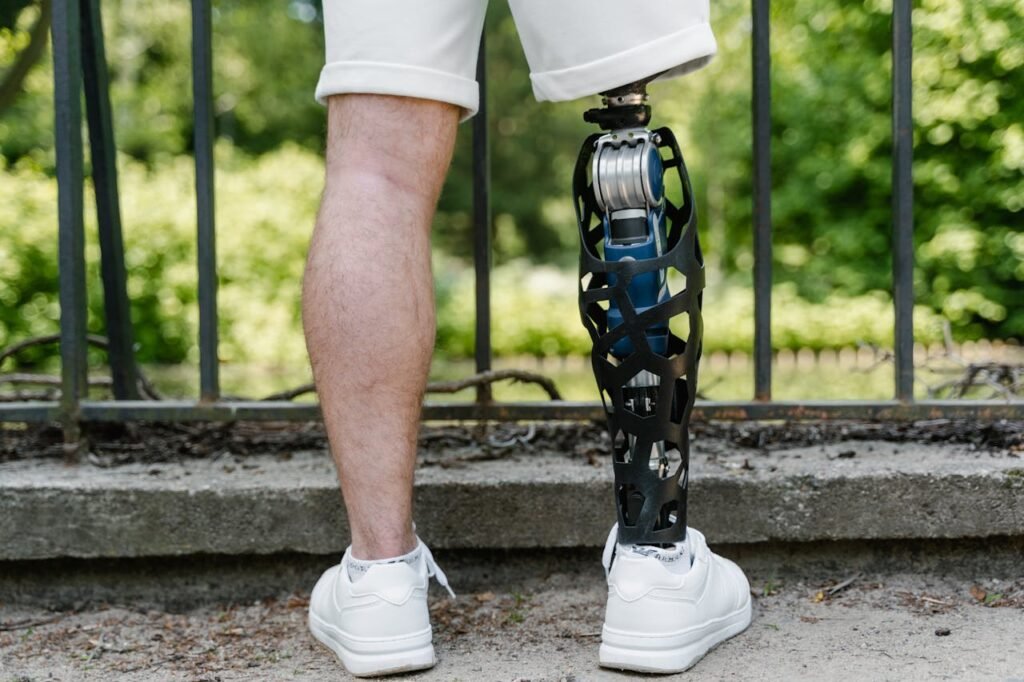
Sustainable and Circular Manufacturing Practices
The future of modular prosthetics must address the growing demand for sustainable solutions. By focusing on circular manufacturing practices, such as designing components for easy recycling or repurposing, businesses can reduce waste while creating more eco-friendly products.
Modular designs are particularly well-suited to this approach, as individual components can be replaced or upgraded without discarding the entire device.
For businesses, incorporating sustainability into the manufacturing process not only addresses environmental concerns but also resonates with an increasingly eco-conscious customer base.
Developing take-back programs or offering discounts for users who return old components for recycling creates a sense of shared responsibility and loyalty. Highlighting these efforts in marketing campaigns can differentiate your brand as an industry leader in sustainable innovation.
Conclusion
Modular prosthetics are more than just a technical advancement—they represent a shift in how prosthetic devices are designed, perceived, and used. By prioritizing flexibility, personalization, and adaptability, these devices empower users to take charge of their lives in ways that were once impossible.
For users, modular prosthetics offer the freedom to adapt to different activities, environments, and stages of life, providing comfort, confidence, and independence. For businesses, they present an opportunity to deliver truly user-centric solutions that stand out in a competitive market.
As technology continues to evolve, modular prosthetics will undoubtedly play a central role in shaping the future of assistive devices. By embracing this innovation and committing to excellence in design, manufacturing, and support, businesses can not only meet but exceed the expectations of a new generation of prosthetic users.
Together, we can redefine what it means to create a prosthetic limb—one that is as dynamic and unique as the individuals who wear it.



